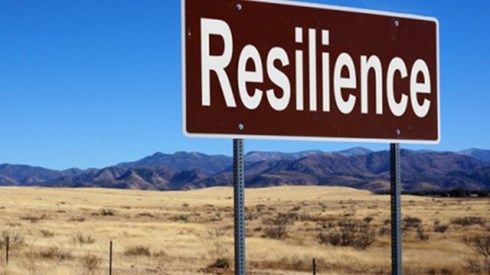Swiss Re Report Shows Global Insurance Resilience Increased in 2021

July 13, 2022

Global insurance resilience to all perils improved in 2021 but faces pressure this year and next, according to a report from the Swiss Re Institute.
The June 2022 sigma report, titled Resilience Index 2022: Risks to Resilience on the Rise Again after a Year of Respite, attributes the improvement in global insurance resilience to strong improvement in health resilience, which offset weaker mortality and natural catastrophe resilience.
Still, the report says the level of insurance resilience in 2021 was below its levels both before the COVID-19 pandemic and prior to the global financial crisis.
Natural catastrophe resilience remained low in 2021, the Swiss Re report says, with 75 percent of global exposures unprotected. The combined world protection gap for health, mortality, and natural catastrophe risks rose to a new record $1.42 trillion in 2021, up from $1.38 trillion in 2020, the report says.
Emerging market countries accounted for 59 percent of that total gap, Swiss Re says, with the emerging market countries in the Europe, the Middle East, and Africa (EMEA), Asia-Pacific (APAC), and Latin America regions posting a combined gap of $831 billion. "We expect the total global protection gap to widen in 2022 and 2023 due to macroeconomic and climate related challenges, including the impact of high inflation this year," the report says.
Increased flood frequency in the EMEA region and North America—risks that are typically less insured—contributed to the weakening of natural catastrophe resilience in 2021, Swiss Re says. Only 25 percent of global natural catastrophe exposures were covered in 2021, based on annual modeled expected losses from wind, flood, and earthquake risk covered by private insurance, the report says.
"The global natural catastrophe protection gap was more than $250 billion in 2021," the report says. "Resilience globally has not improved over the last 10 years, largely because insurance penetration in high-growth emerging economies has remained low, alongside higher take-up rates in slow-growth advanced markets."
The report found the populations of Denmark, France, New Zealand, Australia, and the United Kingdom the most protected against natural catastrophes in 2021.
"By region, resilience is highest in advanced EMEA, followed by North America, reflecting the existence of robust private insurance and national disaster protection sectors, which help businesses and homeowners to manage the financial fallout from natural catastrophes," Swiss Re says. "Nevertheless, in both regions the index was slightly lower than in 2020, primarily due to a higher frequency of floods, both as independent events and associated with tropical cyclones, relative to other peril events."
The higher penetration of property insurance in China did improve natural catastrophe resilience in emerging Asia to 6.2 percent in 2021, the report says. "We see both higher awareness of protection against natural catastrophes and joint efforts from both insurers and governments across China's provinces having a positive impact," Swiss Re says.
The global health protection gap decreased 4.3 percent in 2021 to $737 billion, Swiss Re says, the result of robust insurance market growth and government efforts to cover pandemic-related health spending.
"The improvement was global, but most pronounced in emerging Asia Pacific, Latin America, and emerging Europe," the report says. Emerging markets accounted for approximately 60 percent of the global health protection gap in 2021, with emerging Asia-Pacific countries alone accounting for more than 40 percent of the total.
"Economies with lower health resilience scores or less robust health infrastructure, and high levels of out-of-pocket spending on health, are most vulnerable to emergencies such as COVID-19," the report says.
Swiss Re says it expects health resilience to weaken this year as government healthcare budgets face pressure and there is a resurgence in elective treatments delayed during the pandemic. Higher inflation and a weaker macroeconomic climate pose additional risks to health resilience.
"We expect weaker consumer purchasing power and lower available household protection from health insurance, particularly where health care is an employment benefit," the report says. "However, the pandemic has encouraged greater risk awareness and demand for health insurance."
Swiss Re estimates that health insurance premiums grew more than 9 percent in emerging markets in both 2020 and 2021. "We expect this to offset some of the weakening expected in global health resilience," the report says. "Affordable health insurance has a key role to play in enhancing protection, reducing financial risks and improving overall health resilience."
While insurance protection continues to grow in 2022, Swiss Re says it expects reductions in government benefits and declining asset values to erode overall insurance resilience. High rates of inflation could also increase protection gaps in 2022, the report says, with price increases widening the global insurance protection gap by about $55 billion, a 3.8 percent increase.
"While insurance protection is still growing strongly, we expect scaled-back government benefits and declining asset values to erode insurance resilience," the report says. "Mortality resilience is expected to face pressure as household financial assets decline and social security benefits lag behind the growth in protection needs. We see health resilience weaken as governments withdraw pandemic support for public health systems and patients catch up on deferred elective medical treatment."
Still, the report suggests that rising risk awareness among consumers will provide a "longer-term tailwind." The report also forecasts increased risk of a recession in the next 12 to 18 months, however, leading to weaker employment and insurance demand in 2023.
July 13, 2022



